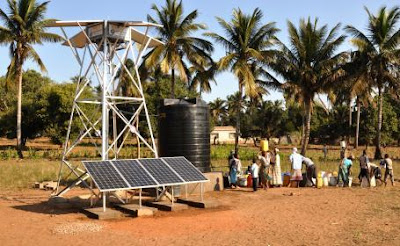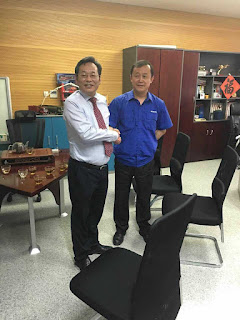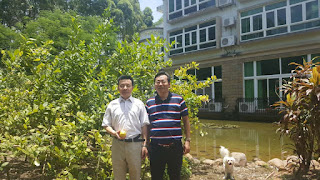 |
| 添加图片说明 |
During the meeting, the chief minister instructed the officials to focus more in 85 tribal-dominated development blocks for the distribution of the solar energy-based irrigation pumps, the official said
"About 12,161 solar powered pumps had been provided to the farmers till now against the target of 11,300 under 'Saur Sujala Yojna' since the inception of the scheme in November last year," an energy department official said here today.
Chief Minister Raman Singh was informed about the development under the scheme while he was chairing a review meeting of the energy department at his official residence today, he said.
Prime Minister Narendra Modi had launched the 'Saur Sujala' scheme on state’s foundation day on November 1, 2016 in Raipur.
It's aim was to strengthen agriculture by providing irrigation facilities, particularly where there is no power supply, and development of farmers in the state, he said.
During the meeting, the chief minister instructed the officials to focus more in 85 tribal-dominated development blocks for the distribution of the solar energy-based irrigation pumps, the official said.
Singh expressed satisfaction that the department had distributed more solar pumps than the set target and congratulated the officials, he said.
The CM further stressed on the need to cover 20,000 farmers under this scheme by the end of this year pointing that farmers belonging to remote areas and inaccessible regions, should be given priority while distribution.
Notably, farmers are being provided solar-irrigation pumps of 5-horsepower and 3-horsepower at heavily subsidized rates in the state.
Solar irrigation pump worth Rs 3.5 lakh (3hp) is being given to Scheduled Caste and Scheduled Tribe classes at the cost of Rs 7,000, to Other Backward Class (OBC) at Rs 12,000 and general category farmers at Rs 18,000.
The remaining amount is borne by the state government, he said.
Besides, the chief minister also directed the officials to complete electrification of all villages and hamlets by March next year.
Similarly, he also asked to complete the installation of 32 power substations being established in different parts of the state, by March next year.
These power substations will facilitate quality electricity supply in nearly 95 per cent areas of the state, the official said.
Meanwhile, the officials informed in the meeting that 4,105 solar pumps had been installed for providing drinking water purposes in the state and there is a proposal to install 1,886 more such pumps in near future.
Chairman of Chhattisgarh Power Holding Company Shivraj Singh and other officials were present on the occasion.




















